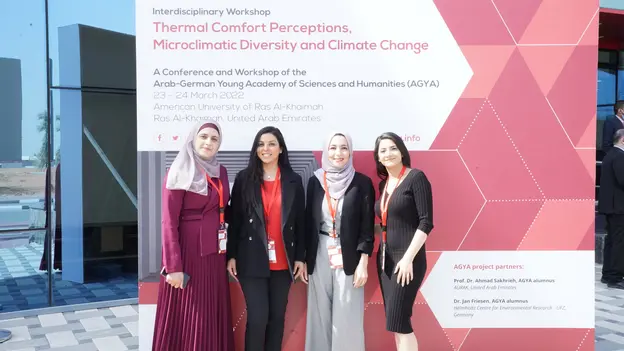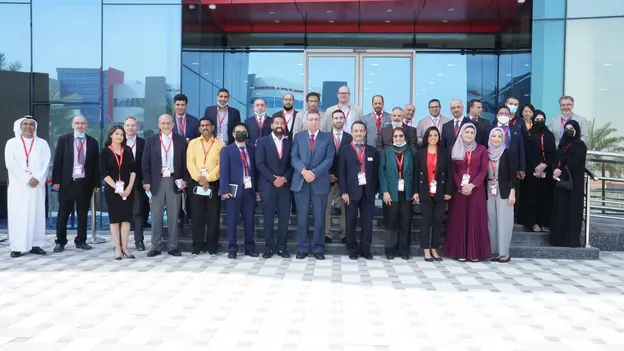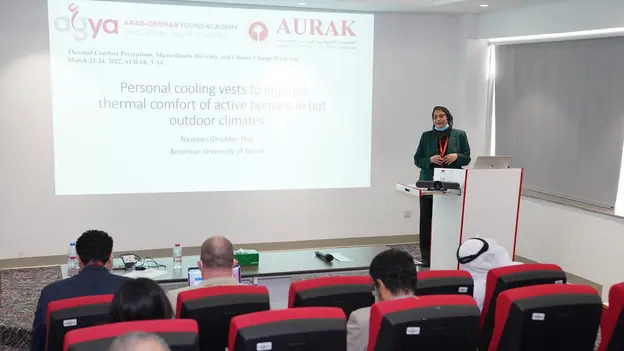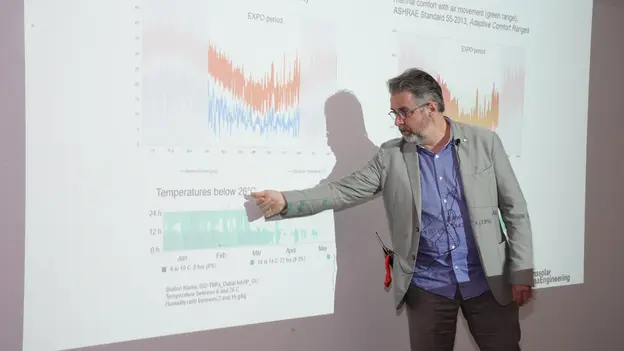Alumni Project
Climate Engineering: Outdoor Thermal Comfort
Workshop
Temperatures are expected to rise because of climate change, leading to more frequent and severe heat stress in the future. At the same time, increasing urbanization and the associated growth of impermeable sealing of urban infrastructure surfaces lead to the development of hardly tolerable urban heat islands. As a result, outdoor urban spaces, which are often perceived as extension of urban living spaces, deteriorate in quality. These factors have significantly changed urban ecosystems, substantially impacting the quality of life of urban residents.
Sustainable cities rely on outdoors to facilitate pedestrian traffic and outdoor activities, as well as to create civic spaces for encounter and a sense of liveability and vitality in urban areas. The goal of creating outdoor spaces that people can enjoy, and ultimately use, has increasingly been recognized as one of the main goals for urban planners and designers to achieve. A city that encourages more people to use outdoor spaces will benefits on physical, environmental, economic, and social levels.
The event was an excellent opportunity to learn about diverse aspects of thermal comfort and urban heat effects from different perspectives and disciplines. I have learned a lot new and inspiring views on the topic and its relevance for both German and Arab urban regions.
Jan Friesen, AGYA alumnus
Interdisciplinary aspects of outdoor thermal comfort
Creating a comfortable thermal environment has several dimensions, from mitigation of heat island effects and urban energy saving to the inhabitants’ health and well-being. In order to achieve a comfortable and attractive urban environment, it is necessary to use a human-centred approach when increasing, limiting, modifying and/or directing microclimatic factors. Studies on outdoor thermal comfort have highlighted the need to develop interdisciplinary frameworks that integrate physical, physiological, psychological, and social parameters to assist urban planners and designers in their decision-making processes.
From a workshop to an international excellency centre in the field of thermal comfort
This interdisciplinary framework formed the basis for a workshop tackling different aspects of outdoor thermal comfort and microclimatic diversity. The two-day workshop focused on the current state and future prospects of the concept of outdoor thermal comfort and microclimatic diversity. The presentations were delivered by high-ranking scientists and AGYA members from Germany and the Arab world who are active in this field. Additionally, the workshop was open for students, lecturers, scientists and policy makers. All participants had the opportunity to visit the running experiments and projects in this field at the American University of Ras Al Khaimah. The workshop has shown that this topic is of great relevance both in Germany and in Arab countries. Therefore, such an exchange should take place at regular intervals and the cooperation will continue.
- Disciplines Involved
- Engineering, Ecohydrology, Urban Studies
- Event Date
- 23 - 24 March 2022
- Venue
- American University Ras Al Khaimah, Ras Al Khaimah, UAE
- Cooperation Partner
- American University Ras Al Khaimah, United Arab Emirates
- Project Title
- Thermal Comfort Perceptions, Microclimatic Diversity, and Climate Change
- Date
- 2022
- Funding Scheme
- Alumni Project
- Countries Involved
- United Arab Emirates, Germany





